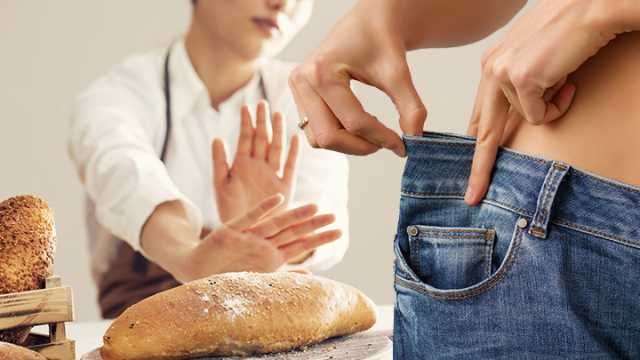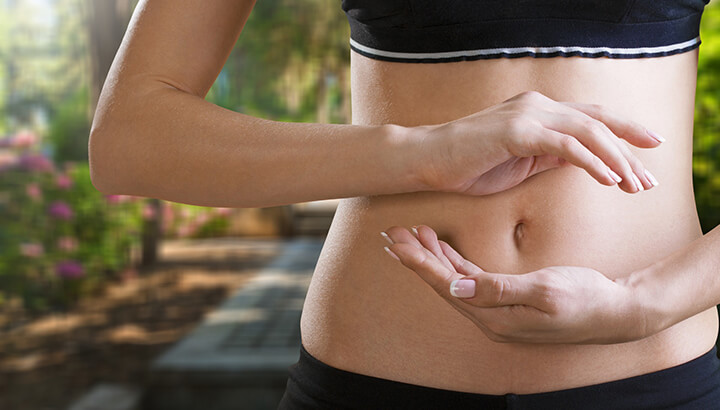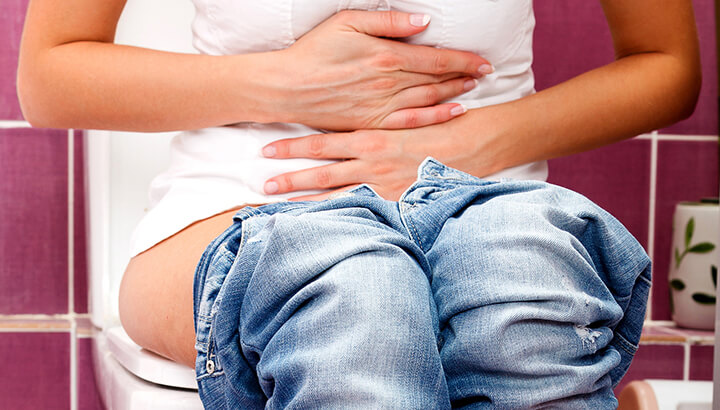
Carbohydrates are the macronutrient that fuels your body. In fact, they represent over 50 percent of America’s daily calories. Carbs are a complicated mixture of sugars, nutrients, fiber and calories. But all carbs are not created equally. Too much pasta, cookies and starchy carbs can lead you down the road to stress, weight gain and overall poor health. So, when I found myself packing on the pounds, depressed and retaining water due to a sluggish thyroid, I decided to go cold turkey — literally.
Here’s what I cut from my diet
For some, cutting out carbs may seem drastic. For me, I needed to see positive changes, fast. When it comes to dieting, I’m more of a “fast and furious” type of gal. After a drastic reduction in carbs I noticed some extreme changes in my body and health. Some were awesome and motivated me to push on. Others, not so awesome, which is why I only chose to follow this diet for one month.
The carbs I chose to cut from my diet included sugar (and anything that contains sugar), potatoes and all starchy vegetables, rice and pasta, wheat breads, crackers and cookies, legumes, fruit, milk and of course all junk food. Although, I cut out the starchy and sugary carbs from my diet, I still included lots of healthy greens like broccoli, kale and spinach. I also indulged in homemade ground almond or coconut flour biscuits. However, I also eliminated any extra salt from my diet, and even avoided salty foods like bacon and processed meat. Here’s what happened.
I lost weight
For someone like myself who struggles to lose a pound due to hypothyroidism, I was pleasantly surprised to find myself losing weight, quickly. In fact, in the first week, I lost eight pounds! I know what you’re thinking — water weight. Let’s face it, we are much more diet-savvy these days. So, it’s understandable that critics of low-carb diets would suggest the weight loss is attributed to water weight. And they would be right, at first anyway. But, that’s not such a bad thing. Retained water can add 10, 20 or more pounds to a person’s body, depending on how large the person is.
The initial weight loss is exciting and a definite motivator, but it eventually slows to one, two or three pounds per week. By reducing calorie-dense carbs, you reduce the calories you consume daily, which forces your body to burn fat stored around your midsection. After one month, I lost 19 pounds in total!
I stopped retaining water

After long days in front of the computer, it was common for me to look down and see that my feet were somewhat swollen. The Mayo Clinic suggests that mild cases of edema or water weight may be the result of sitting or staying in one position for too long, eating too much salty food and even premenstrual symptoms. For me, it was all the above. I propped my tootsies up and tried various herbs, but nothing seemed to relieve the swelling. However, when I cut carbs from my diet, I noticed that my feet no longer swelled up.
There’s good reason for that. Diets high in carbs and sodium force the body to store water between cells. The average person retains about 1.5 pounds of water weight just from carbs on a regular basis. When you overdo the carbs, your body naturally increases water. But, your body doesn’t really need this extra water. So, when you cut out carbs, your body eliminates the excess water, resulting in weight loss.
My breath got funky
When you cut carbs to the bare minimum, your body enters a state called ketosis, where your start burning fat for fuel instead of the usual carbs. Funny thing about ketosis, it turns your breath a bit funky. And, since it comes from within, no amount of brushing or flossing can change that.
I craved sugar — a lot!
No surprise here, sugar is highly addictive and extremely difficult to quit. I’ve never smoked, but I imagine that it may be as difficult as quitting cigarettes. In fact, it may be worse. And boy did I struggle through cravings. One study from France shows that sugar addiction may induce reward and craving that are comparable in magnitude to those induced by addictive drugs. In retrospect, cutting carbs and increasing good fat is probably one of the healthiest and easiest ways to quit sugar. After one month, sugar had lost its appeal. I now prefer natural sweeteners and rarely choose processed sugar.
I became constipated

Few carbs and too much protein left me bloated and constipated. I was no longer getting the fiber I was used to and that meant I was no longer regular. It’s probably the worst thing I experienced when cutting carbs. However, a little senna tea went a long way for relieving my symptoms.
After a week, I got really tired
When you’ve been living off carbs as a primary fuel source, it’s no wonder that your body needs to adjust to a low-carb diet. If it wasn’t for my morning coffee, you probably would have found me snoring, face-down on my keyboard. When carbs are limited, the body begins to feel weak and energy becomes depleted. As your body adjusts to the lack of carbs, it soon switches from burning carbohydrates for fuel to burning fat. This requires extra energy, which not only left me feeling lethargic but also a little brain dead.
I got cranky
My brain needed carbs to stimulate the production of the mood-regulating hormone serotonin. When I removed carbs from my diet I felt irritable. And I’m clearly not alone on this one. An Australian study published in JAMA evaluated overweight adults. They found that those who followed a strict low-carb diet for one year reported more crankiness compared to those who followed a higher-carb, low-fat diet, even though both groups lost similar amounts of weight.
I became empowered
There’s something to be said for taking control of your diet, rather than allowing your diet to control you. The simple (or not so simple) act of eliminating carbs gave me back a sense of control that my diet was sorely missing. Yes, there were cons to eliminating carbs from my diet, but for what it’s worth, it also gave me a sense of empowerment.
— Katherine Marko

